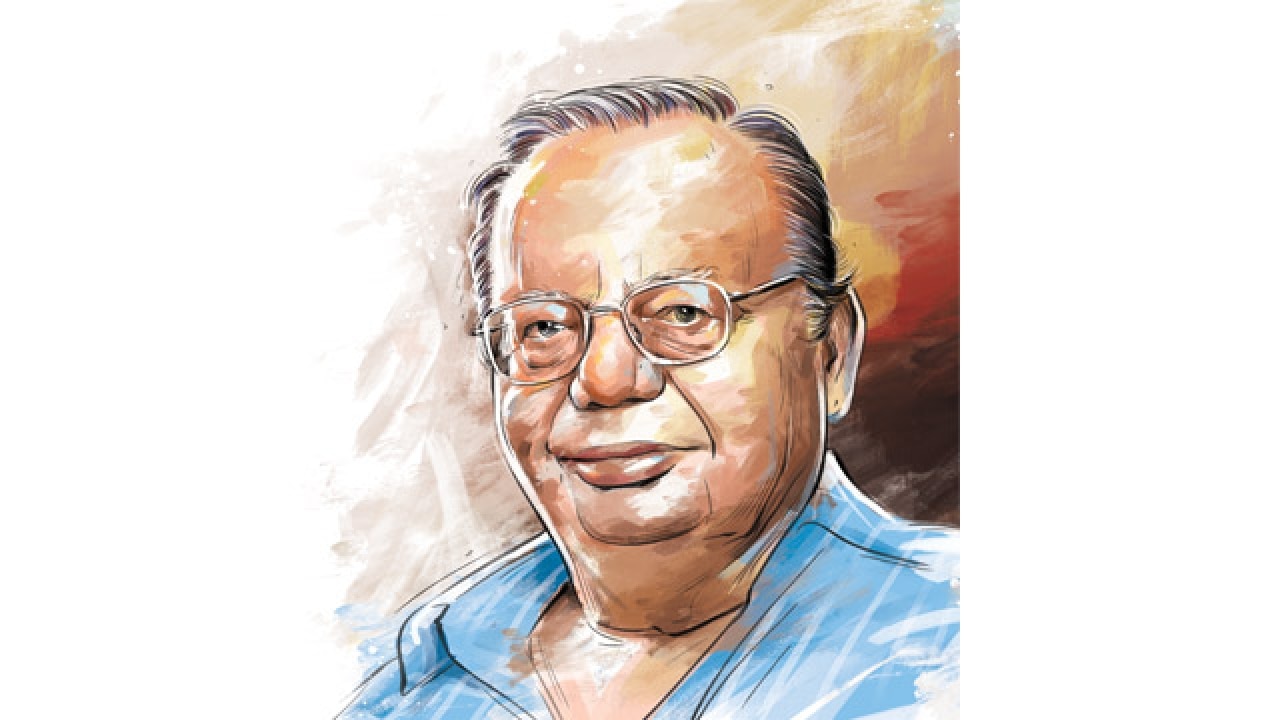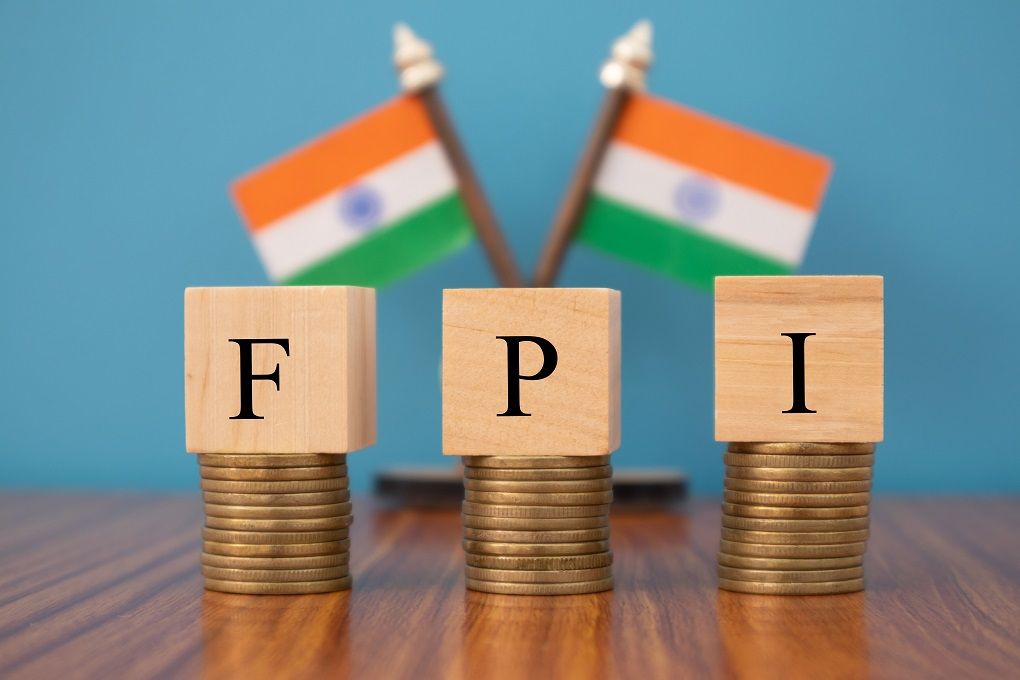Author Ruskin Bond awarded Sahitya Akademi Fellowship
- Highest Honor: Eminent author Ruskin Bond has been awarded the Sahitya Akademi Fellowship, the highest honor given by the literary organization.
- Background: Born in Kasauli, Himachal Pradesh, Mr. Bond has been an active writer for over 50 years, contributing to various genres of literature.
Notable Works:
- His notable works include:
- Vagrants in the Valley
- Once Upon a Monsoon Time
- Angry River
- Strangers in the Night
- All Roads Lead to Ganga
- Tales of Fosterganj
- Leopard on the Mountain
- Too Much Trouble
FPIs dump Indian equities in May amid election uncertainty
Foreign Portfolio Investors (FPIs) Actions:
- FPIs have aggressively sold Indian equities in May 2024, driven by uncertainty over the general election outcome.
- They now prefer the ‘Sell India, Buy China’ strategy due to cheaper valuations in Chinese and Hong Kong markets.
- The FPI strategy involves selling Indian assets, which are deemed expensive, and buying Chinese assets, considered very cheap, mainly through Hong Kong.
Potential Market Reactions:
- If the election results are favourable from a market perspective, aggressive buying by Domestic Institutional Investors (DIIs), retail investors, and High Net-worth Individuals (HNIs) could sharply boost the market.
- The volatility index (VIX), also known as the fear gauge, reached 18.4 as equity benchmarks experienced significant corrections in both benchmark indices and broader markets.
- Despite the current relatively high valuations of India’s market, upcoming electoral outcomes have the potential to realign foreign investor interest.
Khanij Bidesh India may acquire lithium asset in Australia: Rao
KABIL’s Acquisition Plans:
- Khanij Bidesh India Ltd. (KABIL) aims to acquire a lithium block in Australia this year.
- KABIL is a joint venture of three Public Sector Undertakings (MECL, Hindustan Copper Ltd, and NALCO) focused on scouting for mineral assets overseas.
- The company has been operating in Australia for the past year.
- Strategic Objective: KABIL’s goal is to achieve domestic self-sufficiency in critical and strategically important minerals.
- Cost Considerations: Unlike Argentina, Australia is expected to be more expensive, necessitating an increase in KABIL’s paid-up capital.
- Importance of Lithium: Lithium is a vital mineral for the energy transition, essential for lithium-ion batteries that power electric vehicles and storage systems.
The magpies of the Himalayas
Family and Traits:
- Magpies are part of the Corvidae family, which also includes crows, jays, and ravens.
- They are known for being noisy and inquisitive, and in various folklore, they are associated with omens, both good and bad.
- In some European cultures, magpies are believed to accompany witches.
Species and Altitudes:
- The gold-billed magpie, Urocissa flavirostris, also known as the yellow-billed blue magpie, inhabits high-altitude zones between 2000-3000 meters above sea level.
- At slightly lower altitudes, the red-billed magpie can be found.
- The blue magpie lives at lower altitudes where human populations are denser.
Regional Presence:
- The yellow and red-billed magpies are commonly found in the trekking corridors of Western Sikkim and areas surrounding Kanchenjunga.
Physical Characteristics:
- Magpies are about the size of a pigeon, with a notable 45-centimeter-long tail, making their total length around 66 cm.
- Their flight pattern includes quick wing beats followed by long gliding movements.
- Some magpies build their nests in rhododendron trees.
What are the rules on contesting seats?
Rahul Gandhi’s Candidacy:
- Congress leader Rahul Gandhi announced his intention to contest from Rae Bareli in Uttar Pradesh.
- He is also contesting from Wayanad in Kerala.
- Under the Representation of the People Act (RPA), 1951, candidates can contest from up to two constituencies but can only hold one seat if elected in both.
Amendment and Limits:
- Sub-section 33 (7) of the RPA, amended in 1996, permits candidates to contest from two constituencies, previously there was no limit.
- Section 70 of the same Act requires a candidate to vacate one seat if elected from more than one, necessitating a byelection.
- To contest Assembly polls, a candidate must be a voter in that state, but for Lok Sabha elections, a candidate can be a voter in any constituency except Assam, Lakshadweep, and Sikkim.
Age Requirements:
- Minimum age to contest Lok Sabha and Assembly elections is 25 years.
- Minimum age for Rajya Sabha or State Legislative Council is 30 years.
- No minimum educational qualification is required to contest elections in India.
- Candidates must be citizens of India, registered voters, and not convicted of offences punishable by more than two years.
Grounds for Disqualification:
- Holding an office of profit under the Government of India or any State.
- Being of unsound mind, as declared by a competent court.
- Being an undischarged insolvent.
- Not being a citizen of India or voluntarily acquiring foreign citizenship.
- Under the RPA, being convicted of an offence and sentenced to two years or more leads to disqualification.
- A person on bail after conviction and pending appeal is also disqualified from contesting an election.
Political Party Funding and Regulations:
- The Election Commission of India (ECI) reduced the cash donation limit from ₹20,000 to ₹2,000.
- The Supreme Court scrapped the Electoral Bond Scheme, which was notified in January 2018, in 2024.
- For the 2024 elections, ECI banned cash transportation in bank vehicles after sunset.
- The Commission is also monitoring non-scheduled chartered flights for the movement of cash, liquor, and drugs.
How is India streamlining the pharma sector?
Regulatory Change:
- India’s drug regulator, the Central Drugs Standard Control Organisation (CDSCO), has revoked the authority previously delegated to State licensing authorities to issue No Objection Certificates (NOCs) for the manufacture of unapproved, banned, or new drugs for export purposes.
- CDSCO is now the exclusive authority for issuing manufacturing licences for drugs intended for export.
- This decision comes amidst scrutiny of India for allegedly supplying substandard drugs causing health issues.
Global Standing:
- India is the third-largest producer of drugs and pharmaceuticals by volume, exporting to approximately 200 countries and territories.
- The Indian pharmaceutical industry meets 62% of global vaccine demand and is a major supplier of DPT (diphtheria, pertussis, and tetanus), BCG (Bacillus Calmette-Guérin), and measles vaccines.
- Notably, 70% of the World Health Organization’s (WHO) vaccines are sourced from India.
Market Implications:
- As a significant player in the global generic medicine market, policy changes in India will directly affect manufacturers and importers.
- Centralising the licensing authority is crucial as India aims to capitalize on $251 billion worth of drugs going off-patent in the coming decade.
- The Indian generic drug market is anticipated to expand with the inclusion of new drugs, fostering further growth.
- The focus on self-reliance and promoting generic drug manufacturing is vital for India’s pharmaceutical sector.
Hurdles to Overcome:
- India faces several challenges including intellectual property rights issues, and a lack of research and development.
- A comprehensive understanding of political, economic, sociocultural, technological, environmental, and legal factors is essential.
- Centralizing the issuance of NOCs will formalize the Indian pharma industry, enhancing the efficiency of pharma exports to key international markets.
- This move aims to bring uniformity in protocols and supports the target of reaching $450 billion by 2047.



